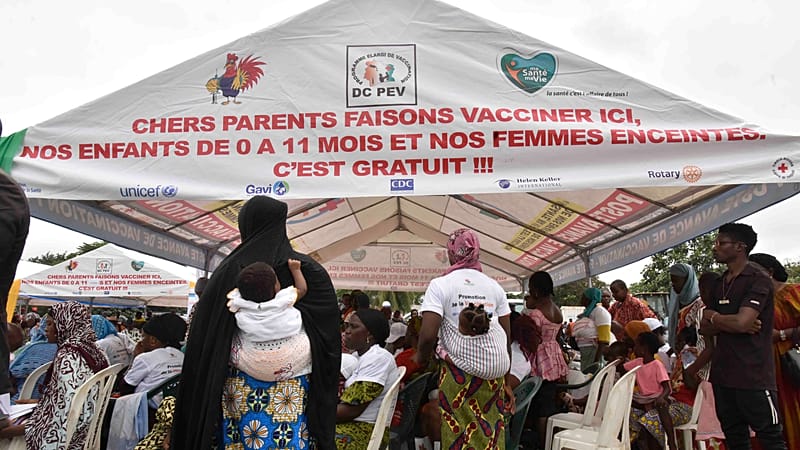Global Fund faces shortfall as several European donors cut contributions

Several European governments have announced cuts to the Global Fund at a fundraising summit in South Africa on Friday, marking a retreat from their traditionally strong commitment to global health initiatives.
The EU did not commit to a specific amount for the world’s largest donor-funded body working on global health, as the next long-term budget for 2028-2034 is still under negotiation. This means that the grand total might not be known until 2027.
Shifting priorities and competing political pressures have resulted in both lower investment and less leadership from Europe in the global health arena.
Neither Commissioner for International Partnerships Jozef Síkela nor European Commission President Ursula von der Leyen were in attendance.
Von der Leyen was in Johannesburg the same day for a G20 meeting, as was French President Emmanuel Macron, another prominent absence from the summit.
Every three years, the Global Fund holds a “replenishment” at which donors pledge new funding. Based on initial pledges announced on Friday – with some countries, including Sweden and the EU, yet to confirm their exact contributions – the fund has raised $11.34 billion, far short of the $18 billion (€15.6 billion) target.
Civil society organisations expressed disappointment at the fading commitment from European governments.
"We recognise the extremely difficult international context, but this result is deeply concerning at a time when responses to HIV, TB and malaria are already being severely disrupted”, four major global health advocacy groups said in a joint letter, referring to the cuts made earlier this year by the United States to humanitarian and development aid.
According to the WHO’s latest World Malaria Report, there were an estimated 263 million malaria cases across 83 countries in 2024, leading to approximately 597,000 deaths — a marked increase of around 11 million cases compared to 2022.
"Today’s summit represents unfinished business in the malaria fight as the pledges made fall well short of what is needed to prevent malaria resurgence”, said Gareth Jenkins, managing director of Malaria No More UK.
The previous pledge for 2023–2025 raised $15.7 billion (€13.6 billion), the largest sum the fund has ever secured. Following sweeping US cuts to humanitarian and development aid this year, European countries appear to be stepping back as well.
In 2022, the European Commission pledged €715 million for 2023–2025, a 30% increase from its €550 million commitment in 2020.
Back in 2022, von der Leyen said that after the collective effort to tackle COVID-19, the world needed to get back on track to defeat other deadly diseases. She described the EU’s contribution as a “lifeline” for millions.
In her State of the Union speechthis year**,** von der Leyen positioned the EU as a leader on global health at a time when others — notably the United States – are stepping back.
“The world is looking to Europe, and Europe is ready to lead,” von der Leyen told MEPs in September.
One of the day’s major announcements was a Global Health Resilience Initiative, pitched as a flagship effort to solidify the EU’s role in shaping global health.
Spill over to the national level
However, priorities in the European Union have shifted, not only from the institutions but also from individual countries.
At the Johannesburg summit, Italy pledged €150 million, down from €185 million in 2022. France – historically the second-largest donor after the US – sent a delegate but did not announce a contribution.
In the last funding cycle, France provided around €1.6 billion, and in 2019 Macron hosted the replenishment in Lyon.
The United Kingdom – which co-hosted the event with South Africa – said it will invest £850 million (€966 million), down from £1 billion (€1.1 billion) in 2022. Another top donor, Germany, committed €1 billion, down from €1.3 billion.
The Netherlands pledged €195.2 million, up from €180 million in 2022. However, this time the donation is set to cover the period 2026–2029, one year longer than the previous cycle.
The big question was over the United States. The Global Fund’s top donor issued a $4.6 billion (€4 billion) pledge, compared with $6 billion (€5.2 billion) last time around. But its delegate said that other countries “must share the burden” to “unlock” the funding.
A Global Fund spokesperson told Euronews Health they are optimistic about donors that have not yet made pledges.
Euronews has reached out to the European Commission president and the Commissioner for International Partnerships for comment.
This story has been updated to clarify the time period covered by the Dutch commitment.
Today

